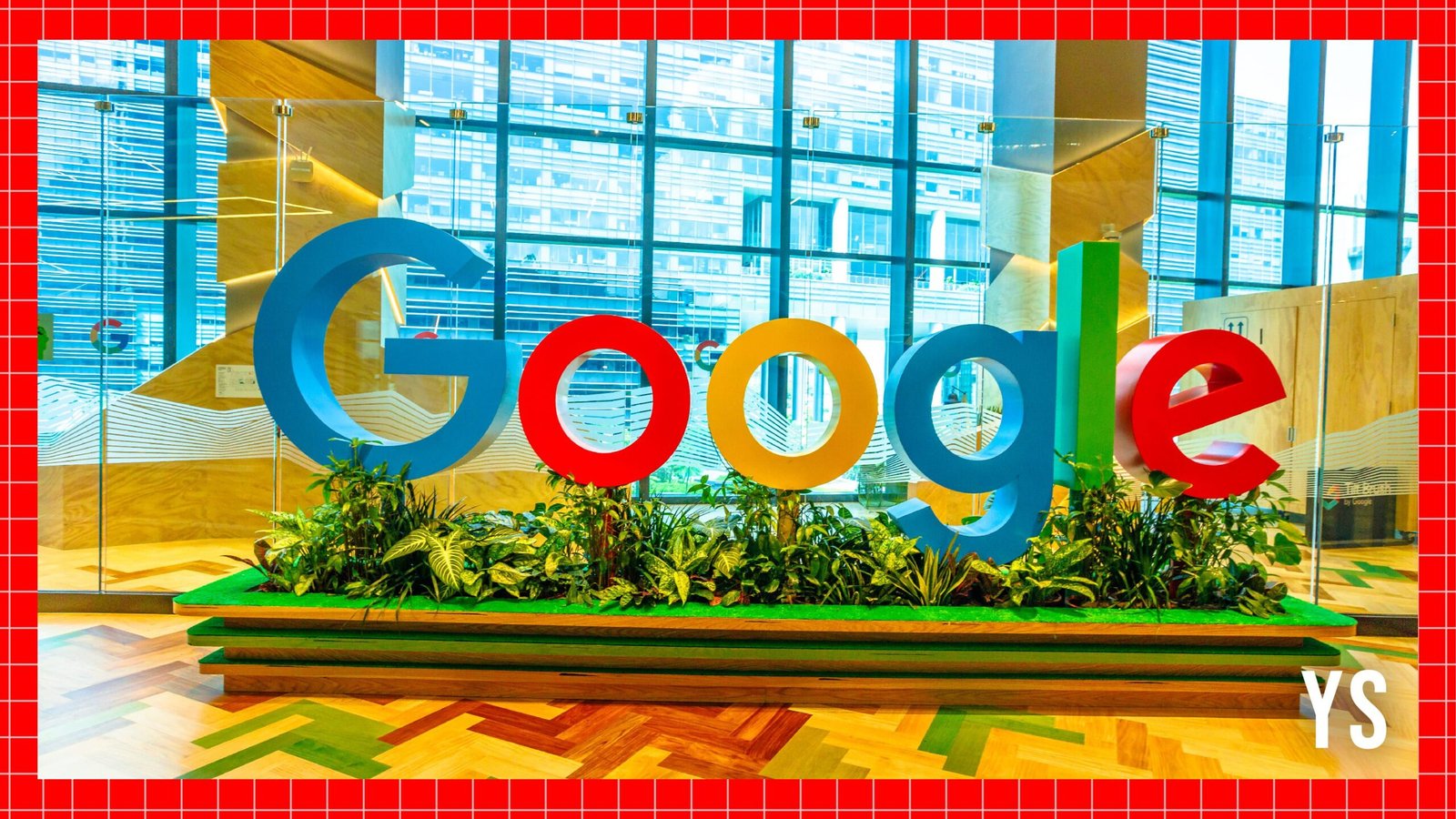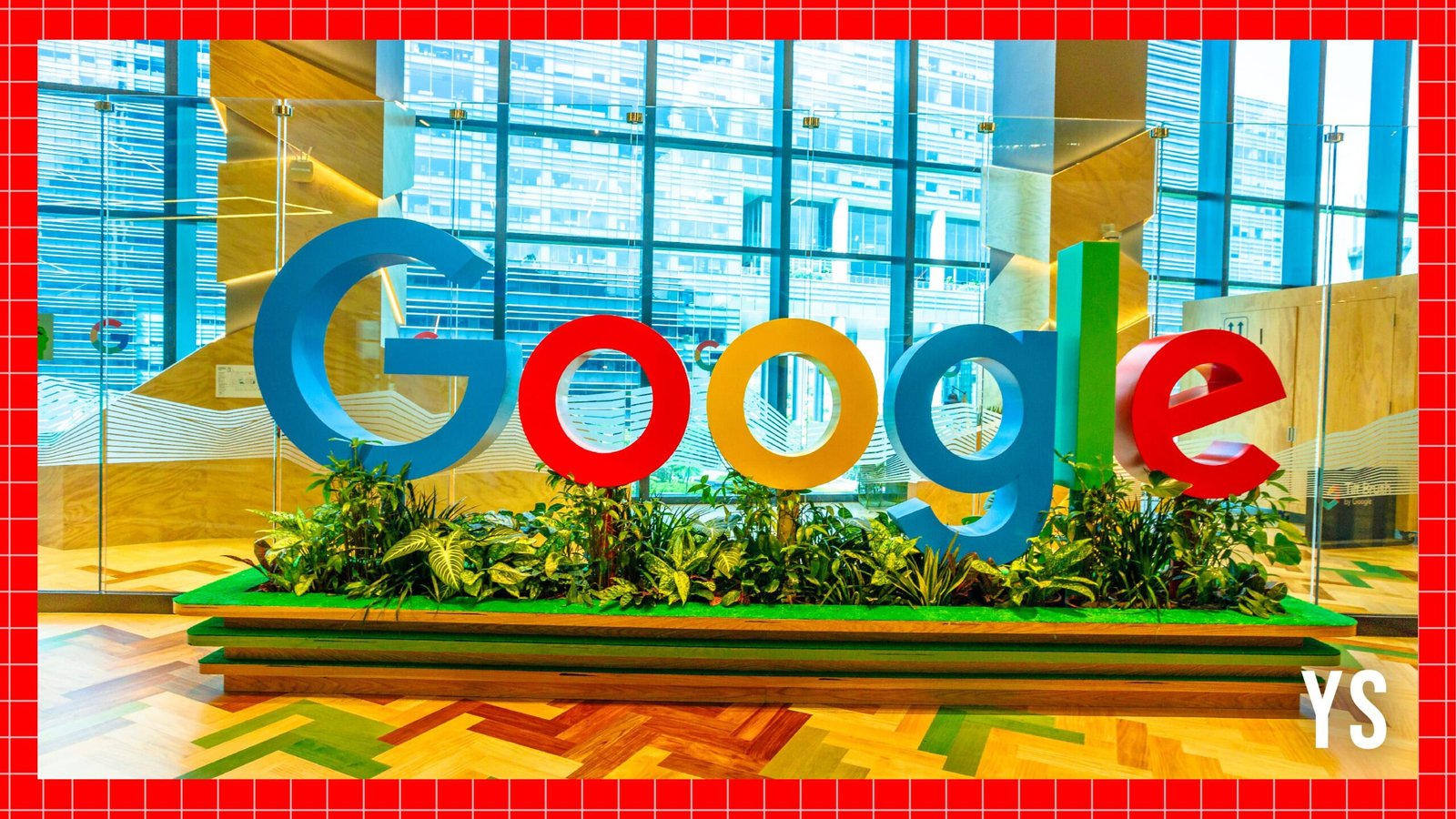Startup
Google parent Alphabet’s Q2 top and bottom line surge driven by search, cloud

parent reported a surge in the top and bottom line in its second quarter financial results of 2024, fuelled by strong growth in its search and cloud businesses.
The California-based company’s net profit in Q2 rose 28.6% to $23.6 billion (or $1.89 per share) from $18.4 billion ($1.44 per share) in the year-ago period. Its revenue in the quarter surged by 13.6% to $84.7 billion from $74.6 billion in the same period last year.
Speaking about the company’s results during the first quarter earnings call, Sundar Pichai, Chief Executive Officer of Alphabet and Google, said, “They showed tremendous ongoing momentum in Search and great progress in Cloud with our AI initiatives driving new growth. Search had another excellent quarter.”
The majority of Alphabet’s revenue is derived from Google advertising. Its ads revenue, including Google Search, YouTube ads, and Google Network, was up 11.18% to $64.6 billion in the second quarter compared to $58.1 billion in the same period last year.
The company said that revenue from its largest business, Google’s search, rose 13.8% to $48.5 billion in Q2 led by growth in the retail vertical, followed by financial services. Meanwhile, YouTube’s ad sales in Q2 increased by 13% to $8.7 billion “driven by brand followed by direct response advertising”.
Beyond advertising, Google Cloud Platform—its cloud computing unit—which competes with Microsoft Azure and Amazon Web Services, continues to play a significant role in the company’s business.
Fuelled by the strong adoption of generative artificial intelligence, Google’s cloud business achieved a milestone, surpassing $10 billion in quarterly revenues for the first time and exceeding $1 billion in quarterly operating profit.
The unit’s revenue jumped 28.8% to $10.3 billion in Q2 compared to $8 billion in the previous year. Operating income in Google’s cloud division surged to $1.2 billion, growing nearly three-fold compared to the earlier year.
Talking about the cloud revenue during the earnings call, Ruth Porat, Chief Financial Officer of Alphabet and Google, noted, “…reflecting first significant growth in GCP, which was above growth for cloud overall and includes an increasing contribution from AI.”
Like other Big Tech companies, AI has been a major focus area for the Sundar Pichai-led firm. Google introduced its largest and most capable AI model—Gemini—in December, and a few months later, it rolled out Gemini 1.5 Pro.

Pichai highlighted that Gemini now comes in four sizes, each tailored for specific use cases, and operates efficiently across platforms from data centres to devices.
“Gemini is making Google’s own products better. All six of our products with more than 2 billion monthly users now use Gemini. This means that Google is the company that’s truly bringing AI to everyone,” he remarked.
Porat said, “We’re particularly encouraged that the majority of our top 100 customers are already using our generative AI solutions. We continue to invest aggressively in the business.”
The company’s reported CapEx in the second quarter was $13 billion, once again driven overwhelmingly by investment in its technical infrastructure with the largest component for servers followed by data centres, she shared.
“Looking ahead, we continue to expect quarterly CapEx throughout the year to be roughly at or above the Q1 CapEx of $12 billion,” Porat added.
During the period, Other Bets, encompassing the Waymo self-driving car business, recorded a 28% increase in revenue, reaching $365 million. However, the division still incurred a loss of $1.1 billion.
“I’m really pleased with the progress Waymo’s making,” Pichai said, adding, “Waymo’s served more than 2 million trips to-date and driven more than 20 million fully autonomous miles on public roads. Waymo’s now delivering well over 50, 000 weekly paid public rides, primarily in San Francisco and Phoenix.”
Porat pointed out that the company’s “strong quarter” also involved its “ongoing efforts to durably reengineer our cost base”.
As of June 30, 2024, Alphabet’s employee count was 179,582 down from 181,798 in the same period last year.
The headcount declined quarter-on-quarter, which reflects both actions taken in the first half of the year and a much slower pace of hiring, according to Porat.
“We expect a slight increase in headcount in the third quarter, as we bring on new graduates. As we have discussed previously, we’re continuing to invest in top engineering and technical talent, particularly in cloud and technical infrastructure,” Porat added, in her 56th and last earnings call, with 37 of them at Alphabet.
Porat, who assumed the role of CFO in May 2015, is the company’s longest-serving CFO. In her new role as President and Chief Investment Officer of Alphabet and Google, Porat will continue to report to Pichai.
“I’m excited to continue to work with her (Porat) in her new role. And I look forward to welcoming our newly appointed CFO, Anat Ashkenazi. She starts next week, and you’ll hear from her on our call next quarter,” remarked Pichai.
The company’s Made by Google event in August will feature announcements about Android and the Pixel portfolio of devices.
Startup
BrowserStack launches AI-driven Low Code Automation tool

Software testing platform has rolled out Low Code Automation, a solution to simplify test automation for quality assurance teams, developers, and non-technical users.
The newly launched solution will address challenges faced by software teams, including manual testing delays and complex automation frameworks, BrowserStack said in a statement.
While traditional test automation requires coding expertise by often limiting non-technical testers to contribute, this tool allows user—irrespective of their technical background—to create and manage AI-driven automated tests without writing code. Users can also use BrowserStack’s cloud infrastructure for reliable test execution.
“(The AI-powered Low-Code Automation (LCA) simplifies the process of building and maintaining test automation suites compared to traditional tools like Selenium. It reduces the steep learning curve and complexity often associated with automation projects, leading to a quicker return on investment (ROI),” Chintan Doshi, Director of Product Management at BrowserStack, told YourStory.
To support development teams worldwide, Low Code Automation speeds up testing cycles, boosts product quality, and enhances user experience by reducing technical barriers.
“Citizen testers—such as business analysts, product managers, and customer support teams—can easily add validations and create automated tests with the test recorder, without requiring coding skills. This reduces their dependency on developers and QAs and empowers them to actively contribute to testing efforts,” Doshi explained.
Founded in 2011 by Ritesh Arora and Nakul Aggarwal, BrowserStack provides a cloud-based platform for developers to test websites and mobile apps across devices, operating systems, and browsers on demand.
With headquarters in San Francisco and Mumbai, the company has expanded its product line to include over 15 products, of which 10 were launched in the past 18 months.
In August, the Accel-backed firm acquired Berlin-based Bird Eats Bug, an advanced bug-reporting tool. The acquisition aims to address the existing gaps in bug reporting and streamline fragmented testing workflows.
Startup
Flipkart’s delivery arm Instakart reports widening losses, lower revenue in FY24

Flipkart’s delivery service arm Instakart’s FY24 losses increased multifold to Rs 1718.4 crore, from Rs 324.6 crore in the previous year, hurt by higher expenses and marginally lower revenues.
The company, which is in the logistics, warehouse, courier and allied services business, clocked an operating revenue of Rs 12,115.3 crore in FY24, 5% lower than Rs 12,787.4 crore it posted a year ago, according to filings made with Toefler.
During the period, the company’s total expenses increased 6% to Rs 14,149.4 crore, mainly driven by employee benefit and other expenses.
Logistics services accounted for the majority (about 78%) of Instakart’s total operating revenues, with Rs 9,429.8 crore, marginally lower than what it collected in the previous year.
Warehousing services, which accounted for about 10% of total operating revenues, witnessed a 28.4% drop in revenue, while collection services, which accounted for 12%, remained stable.
Just a week ago, Flipkart Internet reported a 21% rise in FY24 revenue at Rs 17,907.3 crore helped by rising income from its advertising services.
Flipkart India Ltd, which is Flipkart’s business-to-business (B2B) arm, reported a 26.4% rise in revenue from operations at Rs 70,541.9 crore in FY24.
Startup
Google Cloud to boost support for early-stage AI startups with new programmes, partnerships

has rolled out a range of programmes and partnerships to accelerate the growth of AI startups In India. The initiatives, announced at an AI Startups Summit in Bengaluru, will support early-stage AI founders in building, scaling, and expanding their customer base through the utilisation of Google Cloud services.
The tech giant recently introduced Emerging ISV Partner Springboard—a 12-week programme designed to fuel growth for AI startups. Participants will benefit from hands-on support in creating go-to-market assets, consultations with Google AI experts for product refinement, guidance on technical architecture best practices, and streamlined onboarding to Google Cloud Marketplace.
“Google is committed to empowering AI startups to drive innovation and growth. These initiatives demonstrate our dedication to providing critical support and resources to early-stage founders, helping them build and scale successful AI-powered businesses,” said Manish Gupta, Senior Director, Research, Google DeepMind.
During a fireside chat at the Global Google Cloud Summit, Google Cloud CEO Thomas Kurian applauded startups leveraging AI and cloud technology.
“At Google Cloud, our mission is to support these pioneers by providing the essential tools, resources, and mentorship they need to thrive. Through strategic partnerships, tailored programs, and advanced infrastructure, we are committed to enabling businesses to scale their impact and drive the next wave of digital transformation,” said Kurian.
Early-stage founders will receive enhanced support through the Google for Startups Cloud Program, which will offer $200,000 in Google Cloud credits over two years. AI-based startups will receive even greater support, receiving $350,000 in credits to address the demanding computational needs of advanced AI development, the company said in a statement.
In addition, Google has collaborated with Y Combinator to provide exclusive access to NVIDIA H100 GPUs and Google Cloud TPUs, along with cloud credits, support, and mentorship for its Summer 2024 group of AI-focused startups.
Furthermore, the tech giant is also joining forces with early-stage accelerators and incubators such as 500, StartX, and Berkeley Skydeck to provide early-stage founders with a special package, including Google Cloud credits, expert advice, and technical workshops
Earlier, the California-headquartered firm also announced the launch of Startup School: GenAI, a four-week training programme designed to help startups leverage AI.
-

 Startup Stories1 year ago
Startup Stories1 year agoWhy Millennials, GenZs Are Riding The Investment Tech Wave In India
-

 Startup Stories1 year ago
Startup Stories1 year agoStartups That Caught Our Eyes In September 2023
-

 Startup Stories1 year ago
Startup Stories1 year agoHow Raaho Is Using Tech To Transform India’s Fragmented Commercial Trucking
-

 Startup Stories12 months ago
Startup Stories12 months agoMeet The 10 Indian Startup Gems In The Indian Jewellery Industry’s Crown
-

 Crptocurrency8 months ago
Crptocurrency8 months agoLither is Making Crypto Safe, Fun, and Profitable for Everyone!
-

 Startup Stories1 year ago
Startup Stories1 year agoHow Volt Money Is Unlocking The Value Of Mutual Funds With Secured Lending
-

 Startup Stories1 year ago
Startup Stories1 year agoWhy Moscow-Based Kladana Considers Indian SME Sector As The Next Big Market For Cloud Computing
-

 E-commerce1 year ago
E-commerce1 year agoTop Online Couponing Trends To Watch Out For In 2016




